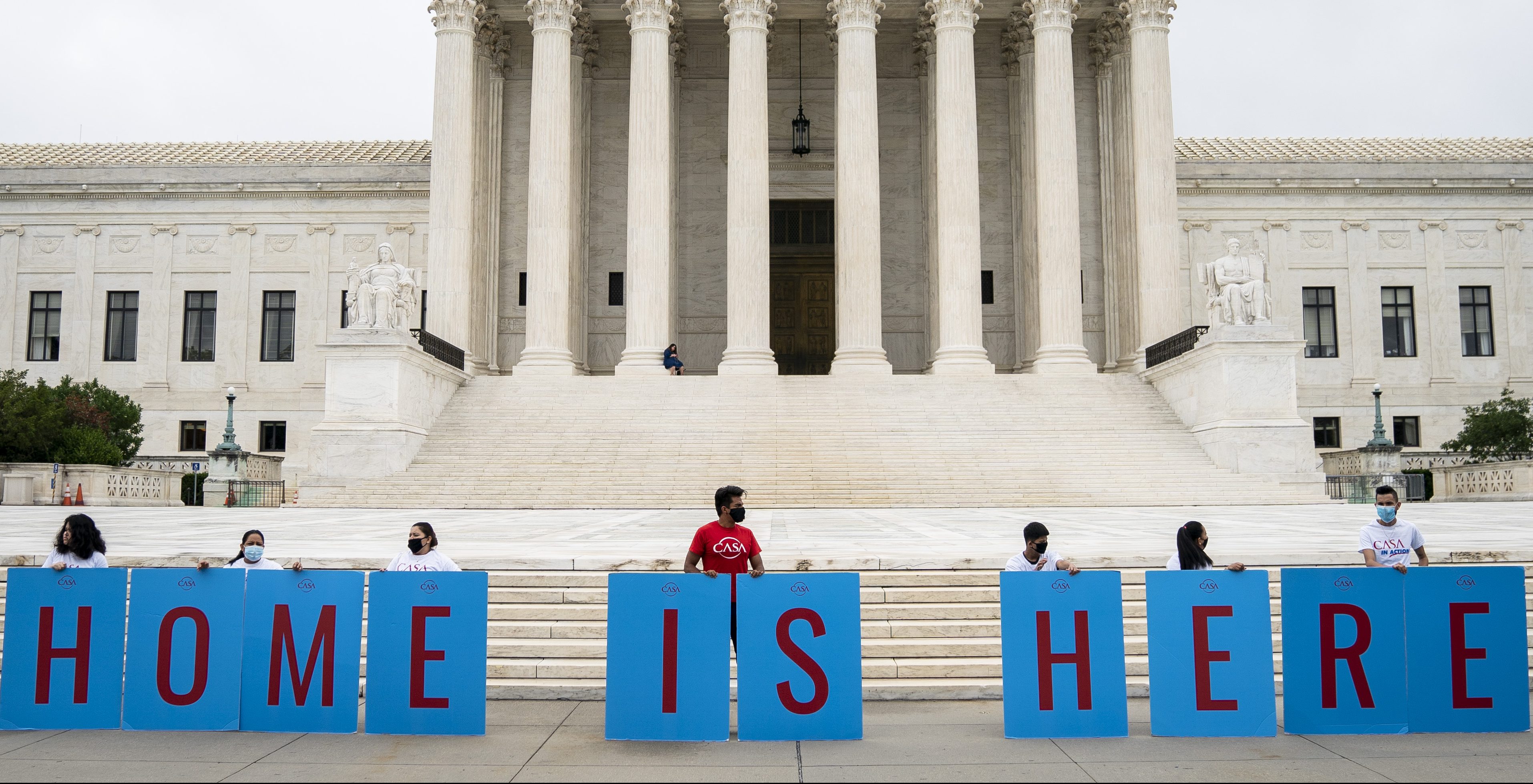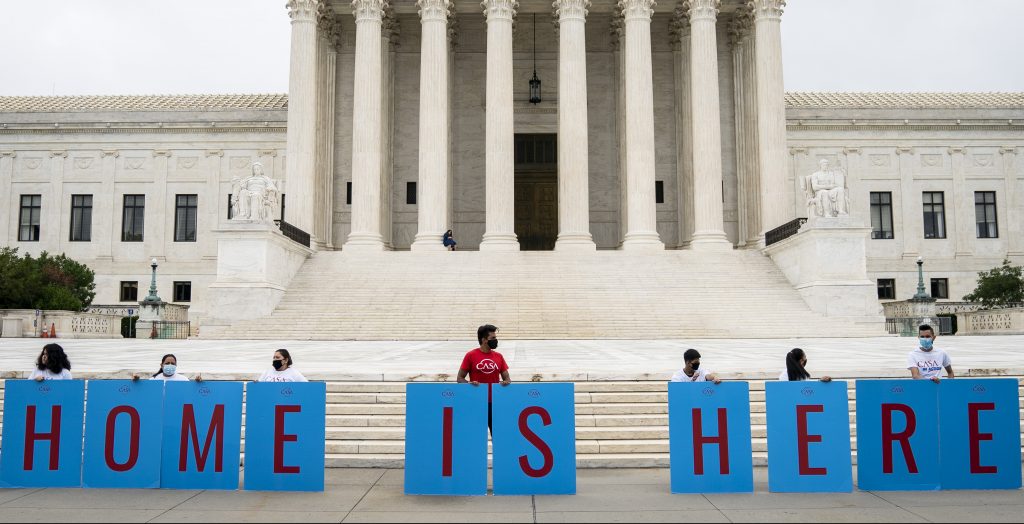On Thursday, the Supreme Court ruled against Trump’s decision to end Deferred Action for Childhood Arrivals (DACA), calling his administration’s push to terminate the Obama-era program “arbitrary and capricious.”
In 2017, Trump announced that he would phase out DACA, leaving more than 700,000 immigrants who had been granted permission to work and study under the policy in political and legal limbo as they worried about whether they’d eventually be subject to deportation.
However, the Supreme Court’s opinion provides some security because it means DACA recipients, known as Dreamers, can continue living under the program’s protections rather than seeing them taken away by Trump. The justices voted 5-4; Chief Justice John Roberts sided with the more progressively-minded Elena Kagan, Ruth Bader Ginsburg, Stephen Breyer and Sonia Sotomayor. Roberts filed an opinion and explained that the justices were weighing in only on Trump’s approach to ending the program, arguing that it was in violation of federal administrative procedures. However, the ruling isn’t a full lease on the actual program, nor does it uphold it constitutionally.
“We do not decide whether DACA or its rescission are sound policies,“ Roberts wrote. “We address only whether the agency complied with the procedural requirement that it provide a reasoned explanation for its action. Here the agency failed to consider the conspicuous issues of whether to retain forbearance and what if anything to do about the hardship to DACA recipients.”
Congress will still need to find a permanent solution for Dreamers—one that leads to citizenship for the many who were brought to the U.S. as young children. Brett Kavanaugh, who dissented from the majority with Clarence Thomas, Samuel Alito and Neil Gorsuch, wrote his own opinion and cited the program’s legal “uncertainty” as one of his reasons for disagreeing with Roberts’ ruling.
“That uncertainty is a result of Congress’s inability thus far to agree on legislation, which in turn has forced successive administrations to improvise, thereby triggering many rounds of relentless litigation with the prospect of more litigation to come,” Kavanaugh wrote.
His dissent could foreshadow the cycle of litigation conservatives will latch onto if they try to force an end to the program. Luckily, DACA has widespread support across political lines: A recent Politico/Morning Consult survey cited by CNBC showed more than 75% of registered voters believe DACA recipients should be allowed to remain in the United States. That should give Congress the guts to offer Dreamers legal status, ending years of anxiety and giving the community a permanent victory.




